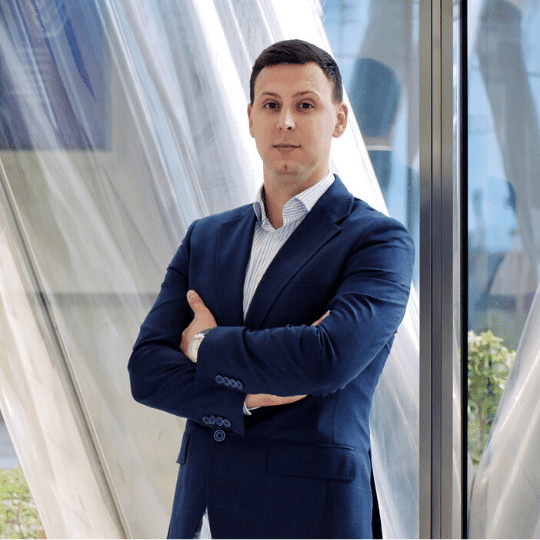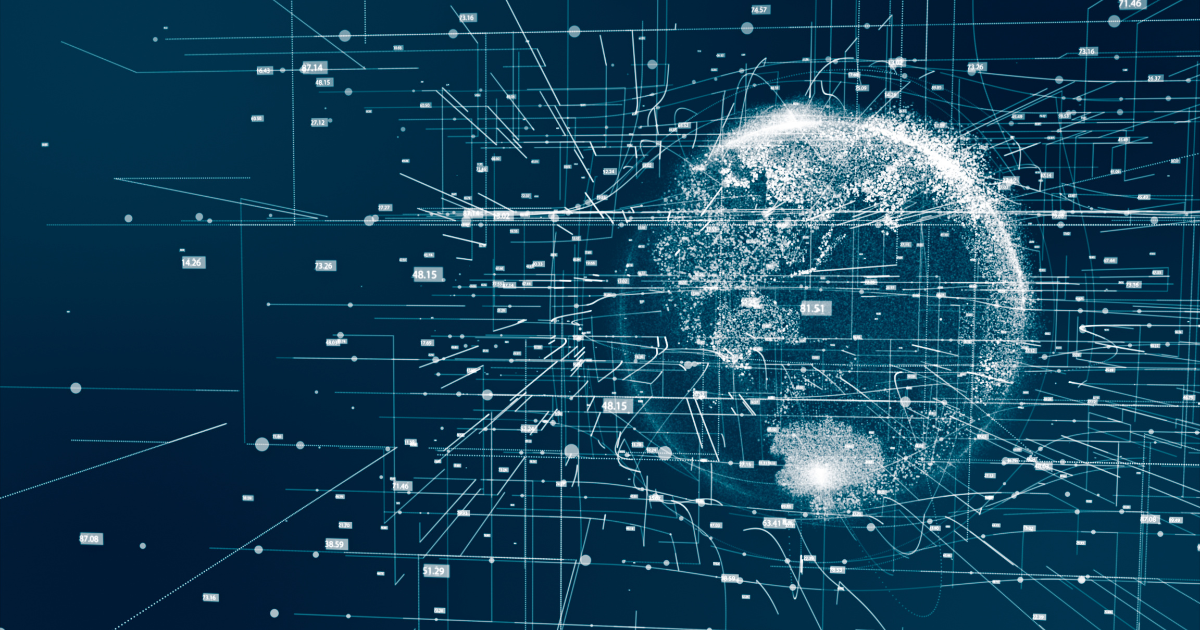
November 18, 2021
How Artificial Intelligence Is Transforming Influencer Marketing Industry (update: 2021)
Author:

CSO & Co-Founder
Reading time:
10 minutes
As we know, Artificial Intelligence (AI) significantly changes and affects the business world. According to the International Data Corporation (IDC), by 2024, industries will spend up to $ 110 billion on AI consulting. To date, monetary investments in AI have already approached the $50 billion mark. One of the most innovative and newest ways to use AI today is implementing AI in influencer marketing.
Using AI in influencer marketing helps companies identify viable marketing channels of influence. Moreover, companies are starting to work with virtual influencers or AI influencers. Before we tell you about the impact of artificial intelligence on influencer marketing, let’s take a look at how popular influencer marketing is today.
Why influencer marketing is so popular?
Influencer marketing has recently come into the whole advertising world. It has gained a good renown because of social media marketing campaign effectiveness. The number of brands and companies that invest in influencer marketing campaigns is increasing day over day. It has continued to not only evolve but lead within the marketing and advertising area with its modern approach.

So, the popularity of influencer marketing has only grown, which means that a large number of studies have been done, resulting in some interesting numbers [1].
- 86% of women use social media for purchasing advice.
- 49% of consumers depend on influencer recommendations and 40% had purchased something after seeing it on Twitter, YouTube or Instagram.
- Influencer marketing campaigns earn $5.78 for every dollar spent.
- The influencer marketing industry is set to reach $13.8 billion by 2022.
Search for right influencers
One of the biggest challenges that brands and marketers face is identifying the right influencers. You can’t evaluate the potential of an influential person just based on the number of his subscribers.
In order to select the best influencer for a given campaign, it is important to know his or her audience. This problem requires deep analysis and understanding of users. While planning campaign users should understand which group of people will be a recipient.

You need to consider other factors, such as age, location, the level of engagement in their posts, influencers interest and more others.
All this information could be extracted from social media data using data science services and AI in influencer marketing.
The role of AI in influencer marketing
As mentioned earlier, identifying the most suitable influencers is one of the biggest challenges for marketers. A business should be able to analyze facts and figures to get a real idea of whether a campaign will be successful or not.

Therefore, Artificial Intelligence (AI), machine learning (ML) and natural language processing (NLP) come into play here, which revolutionize the way brands perform influencer marketing.
Influencer marketing can benefit from AI in the following ways:
- Search for right influencers
- Provide practical and useful workflows
- Identify relevant content and trends
In addition, AI in influencer marketing can detect fake engagement and fraudulent influencers, predict and calculate campaign ROI and even choose the best content for each influencer campaign. Below we will discuss in more detail the applications of AI in influencer marketing.
Some of the demographics that could be extracted using AI in influencer marketing
Age
It is important to know the average age of the influencer audience. Marketing experts claim that age is a very important factor. Basically age defines our audience and target group. Advertising products for older people to kids and teenagers or other ways around is counterproductive. That is why knowing if an influencer has a younger or older audience is very important.
Gender
Gender is another important factor. Many products and brands are strongly associated with a specific gender. Partnering with influencers whose audience is mostly male or female makes sense only in cases when advertised products may have appeal for such an audience.
Location
Even though we live in a globally interconnected world, location still matters. This is especially important for local products and brands. However, even global ones often need slightly different approaches for advertising depending on part of the world. Knowing consumer location is a very important event today. There is no surprise that location of the influencer audience is important for proper campaign targeting.
Marital status
Some products and services are dedicated to singles, others have more appeal for couples. For campaigns of such products to make an impact it is necessary to select the best audience. In influencer marketing it means selecting a person whose follower base mostly belongs to such a category, hence knowing marital status matters.
Interest
Influencers share their interests with followers. There are a multitude of influencers` interests in gaming, sports, cooking, etc. Choosing the right influencer means reaching out to many people with similar interests. However there is more, a thorough analysis may indicate that most of a cooking chef`s followers are also interested in new technologies. This could make him a good advertiser for a hot new gadget etc..
Brands
Brands are similar to interests. Many influencers are already associated with some brands, e.g. a runner who is using only Nike shoes. Diligent analysis of such influencers followers may indicate that they are also interested in healthy food and are good targets for campaigns for organic food brands.
Influencer matching
Did you imagine that companies and brands could be automatically matched with influencers? Many companies that use existing influencer marketing platforms spend a lot of time searching for the right influencer. This kind of search could be replaced by an automated AI matching based on brand preferences.
Combining audience dimensions listed above makes a good base for selecting the best influencer to partner with for a specific campaign. This can make a huge difference, properly targeting the campaign is the key to successful marketing endeavors. Such data and metrics can be derived from raw social media feeds using a combination of Machine Learning and natural language processing (NLP) algorithms. Thanks to the growing suite of cloud-based solutions it can be implemented in an almost completely serverless way, which minimizes the costs of such a system.
If a company plans an advertising campaign using influencers, how does it know if an influencer marketing campaign will go well? It should be based on something more than just a feeling. A business should be able to analyze numbers and facts to get a real sense of whether the campaign will be successful or not. Imagine having influencer marketing analytics based on Artificial Intelligence (AI).
With the help of machine learning for marketing and Deep Learning, end users are able to see which particular influencer fits best into their social media campaign. End users will be able to calculate which particular influencer will bring the highest ROI.
Applications of AI in influence marketing
Evaluating the influencer’s performance
One of the many applications of AI in influencer marketing is evaluating the influencer’s performance. Using natural language processing (NLP), AI can predict how well an influencer will match the brand’s goals in any campaign. Marketers can use AI to analyze individual messages made by an influencer and compare data to see how effectively each influencer works with the brand.
Detecting fake engagement and fraudulent influencers
According to Marketing Benchmark Report 2020 in which 4,000 marketing agencies and brands were surveyed, it was revealed that more than 2/3 of respondents faced fraud from influential people. [2] The difficulty in finding right influencers for the brand is based on the problem of fraudulent individuals who use bots to increase their social media activity.
Therefore, it is the next application of AI in influencer marketing. AI helps to detect such bots and eliminate fake actions. Furthermore, it makes it simple to distinguish computer-generated and real influencers.
Identifying and delivering relevant content
Another application of AI in influencer marketing is identifying and delivering relevant content. AI can process and analyze huge amounts of data that marketers need to evaluate the value of particular types of content.
Moreover, it can provide marketers with editorial content proposals based on key results compared to hundreds of source data, as well as estimates of the content’s effectiveness relative to the creator’s target audience.
Determining the ROI of the campaign
AI can predict return on investment using dynamic, focused (personal) benchmarking and forecasting. It also helps to track every content created as a result of your campaign and analyze various engagement measures.
Virtual Influencer: trend type of AI in influencer marketing
Virtual influencers have been growing all over the world for more than a decade, although just two decades ago the word “influential person” had not yet entered the marketing vocabulary. Viewers spend money to see them “in person”. And brands are looking for the top virtual influencers to sign a cooperation agreement with them. Who are they and how do they work? Keep reading!
What are virtual influencers?
Virtual influencers are a growing trend in influencer marketing. These are not real people, but characters with personalities and behaviors completely created by teams of artificial intelligence and marketing experts.
Virtual influencers are usually animated characters or CGI-based characters that can work anytime and anywhere according to the marketing needs of the brand.
The first and the most popular virtual influencer: Lil Miquela
A 19-year-old Brazilian-Spanish model with straight bangs, a freckled face, and an unusual appearance appeared on the Instagram scene in April 2016.

She regularly collaborates with real and virtual celebrities, collects more than 500,000 monthly streams on Spotify, models, attends music festivals, visits foreign countries, answers interviews and even responds to her own comments on Instagram. Miquela’s long list of achievements demonstrates the adaptability of digital personalities, as well as their entertainment value and their ability to interact with the audience.
With 3.1 million Instagram followers, the number of which is growing, Miquela has signed a digital partnership with companies such as Calvin Klein, Prada or Samsung. Moreover, Lil Miquela takes the position of an artificial influencer with the highest income. Here is the example of her digital partnership with Samsung:
Why do brands employ virtual influencers?
Flexibility
Flexibility is one the advantages for brands to work with AI influencers. Virtual Influencers will give brands more control over their collaborations. Virtual influencers may be less risky compared to their real influencers, and they are unlikely to cause controversy, creating a negative reaction from followers and which could harm the brand.
No regulations for AI influencers, more freedom for brands
Despite the growing popularity of virtual influencers, no regulations have been created for them so far. Moreover, the backstories of influencers can be changed according to the brand values. Virtual influencers do not need breaks due to burnout, which allows brands to actively implement marketing campaigns and realize their goals.
Wrapping Up – AI for Influencer Marketing
Artificial Intelligence (AI) is getting more and more into the influencer marketing industry. Earlier, companies had to choose influencers based on numbers which are just showing the engagement of followers, number of followers and potential location. Those days are over.
AI-powered influencer marketing platforms will help to discover real knowledge on the audience and brands. A more scientific approach will improve advertisement campaign performance and will help to attract new customers. Features based on AI and technology of machine learning in finance and marketing offer accurate and transparent insights effectively establishing a solid return on investment (ROI).
The future of influencer marketing will rise together with AI algorithms. The best results will be given where the combination of different algorithms will work in parallel with humans. It will provide highly efficient campaigns for brands.
If you are considering extracting knowledge from hidden Social Media correlations or just want to extract additional insight from your customers or marketing data, ping us a message.
Category:





